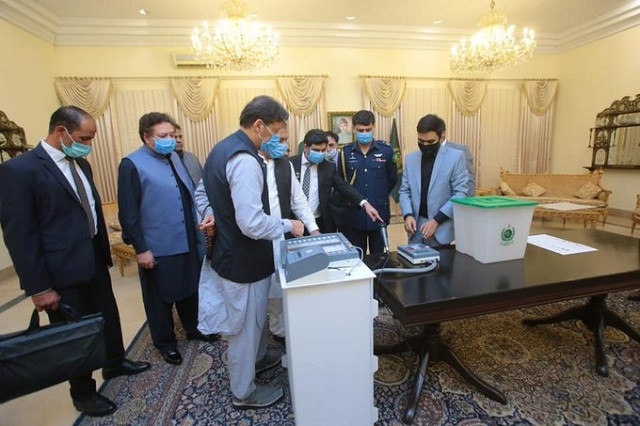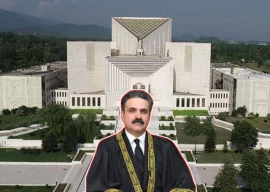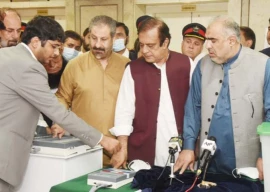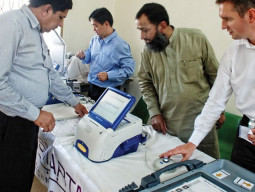
The Pakistan Peoples Party (PPP) on Saturday rejected the Pakistan Tehreek-e-Insaf (PTI)-led government’s move to hold the next general elections through the Electronic Voting Machines (EVMs), terming it a plan to undo the 18th Amendment via a “selected parliament”.
In a statement, PPP Secretary General Farhatullah Babar said that the electronic voting will render several sections of the Election Act of 2017 redundant, adding the government has not yet explained how e-voting by oversees Pakistanis without the involvement of Pakistan embassies abroad suddenly became feasible when it was declared “problematic” by NADRA in 2012.
Denouncing it as Prime Minister Imran Khan’s “obsession”, Babar stated that the real issues in electoral fraud were far too complex for the EVMs to address.
“The prime minister’s obsession with the electronic voting machines betrays a lack of understanding of the issues at best and a plan for manipulating next elections through technology so as to undo the 18th Amendment through a selected parliament at worst,” the PPP’s secretary general said.
Read PDM rejects ‘unconstitutional’ EVMs
In response to the launch of a campaign at public expense in support of the EVMs, the PPP leader said:
“EVMs can neither check booths capturing nor put to an end the mysterious midnight phone calls from ‘NO Caller ID’.”
Casting doubts on government’s promised reforms through the introduction of e-voting, Babar maintained that the EVMs cannot end the alleged rampant practice of “summoning winning candidates to offices and compelling them to switch their loyalties” nor can it stop manipulations to disqualify party leaders from leadership and throw people out even from even electoral contests.
Recalling the moment when Result Transmission System (RTS) was “hijacked” in the 2018 elections and even balloting for plots which “failed to prove credibility”, Babar expressed strong reservations about whether the EVM technology will win people’s trust in addressing the issues in transfer of power to the people.
About the e-voting by the expats, he recalled, NADRA had in 2012 explored the proposition and had found that balloting will have to be held in embassies after electronic thumb verification by the embassy officials, concluding that it was problematic.
“Credible reasons have not been spelled out as to how e-voting by expats without the involvement of Pakistan embassies abroad has become feasible now,” he said and added that the “real issue is the stealing of peoples mandate by newer and newer ways which became brazenly clear during the previous elections”.
Read more ECP forms body to review EVMs
The former senator said that peoples’ mandate has been stolen by making and breaking political parties, by arm twisting to switch political loyalties, and by propping up overnight mysterious militant groups to cut into the vote bank of mainstream political parties.
He said that weak administrations in the driving seat face manipulations to toe the line or face destabilization by ideologues as happened in Faizabad dharna in 2017.
“Not the EVMs but the manipulated power transfer must be central to any discussion about putting the house in order,” he said.
In addition, he said, electronic voting will render several sections of the Election Act including 84 (Voting procedure), 85 (Tendered Ballot Papers), 86 (Challenge of voters), 87 (Spoilt Ballot Papers), 88 (Stopping of the poll), 89 (Voting after the closing of the poll) and 90 (Proceedings at the close of the poll) redundant and required to be amended by amending the rules.
He said that it amounts to making legislation contingent upon the dictates of an untested technology and bypass the parliament in law making.








1730379446-0/WhatsApp-Image-2024-10-31-at-17-56-13-(1)1730379446-0-270x192.webp)
1724926799-0/Untitled-design-(7)1724926799-0-270x192.webp)









COMMENTS (1)
Comments are moderated and generally will be posted if they are on-topic and not abusive.
For more information, please see our Comments FAQ